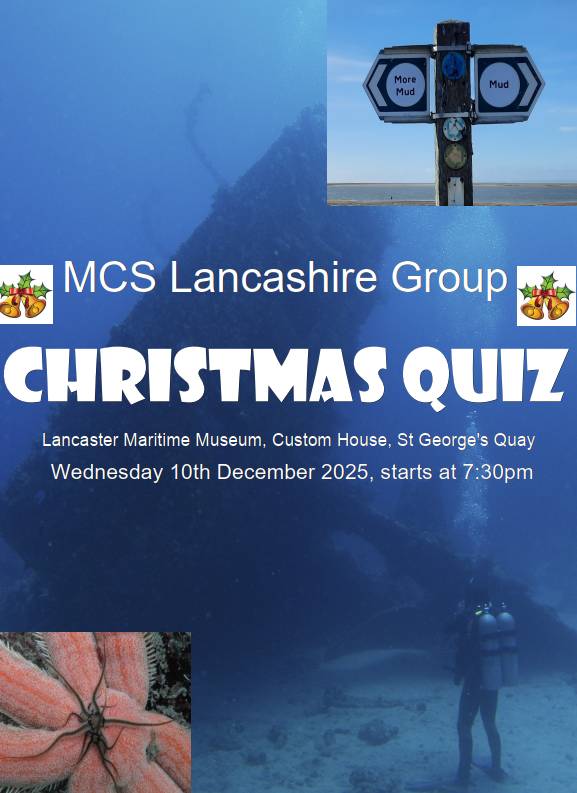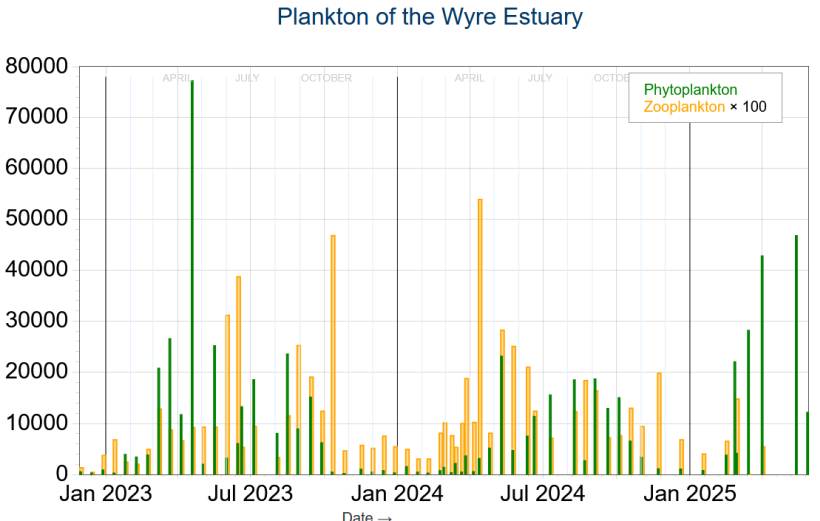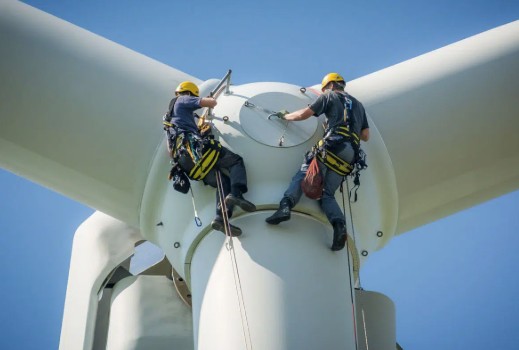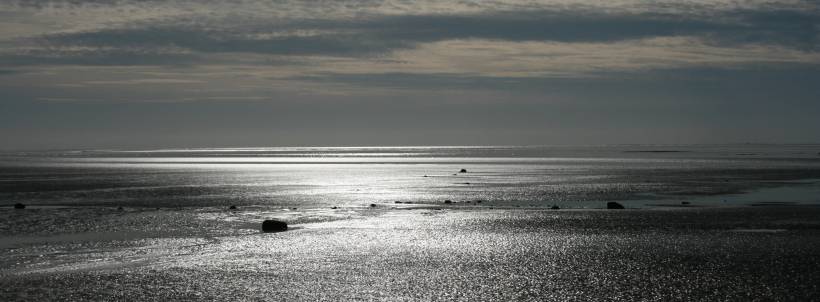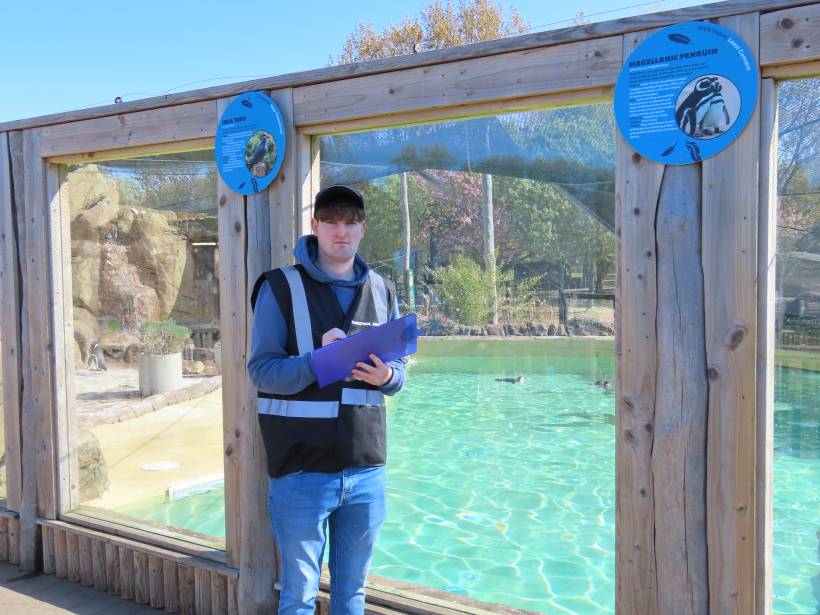The City Nature challenge took place between 25th to the 28th of April this year, this was a Global challenge to record as many species in as many places as possible. As the dates coincided with a plankton sample, I decided to try and submit some species from this to the Lancashire record.
On land, Spring is really getting into its stride by late April, in the Wyre Estuary, however, Spring has been and gone! The date fell into a relatively quiet period between the big Spring bloom of Odontella regia (which this year coincided with a bloom in Asterionella glacialis due to the exceptionally sunny weather in March), and the arrival of the Summer species.
Above: Phase contrast micrograph of Cerataulina pelagica, 25th April 2025, by BK.
Though the Spring species were still present in very low numbers, most of the phytoplankton were Ceratauline pelagica, shown in the image above, which has such a thin silicate frustule that it normally breaks when sampled by netting, which can lead to gross underestimation of its numbers.
Numbers of dinoflagellates were higher than is common in the estuary; most common was Tripos fusus (the accepted names for the Ceratiaceae as a family have all changed, previously I would have recorded this as Ceratium fusus), but I also managed a photo of a very nice specimen of Tripos macroceros, which is rather less common in the estuary all together, and is shown in the micrograph below:
Above: Phase contrast micrograph of Tripos macroceros, with a central stem and two long, sweeping horns, there are a number of cells of Cerataulina pelagica to the left of the dinoflagellate.
Along with a few stragglers from the Spring bloom, I also saw a few species that will likely play a more important role in the plankton community later in the year. The most common were Guinardia delicatula and G. flaccida, but I also had my first sighting of Stephanopyxis turris (one of my favourites to try an photograph – unfortunately I did not get a good micrograph of the single individual I spotted on this occasion), and a couple of cells of Eucampia zodiacus.
In all, members of the public submitted 4295 observations to the Lancashire records, which included 1028 species! The City Nature Challenge is recorded in iNaturalist at: https://www.inaturalist.org/projects/city-nature-challenge-2025-lancashire-uk.
If you would like to know more about plankton – with an emphasis on our studies in the Wyre Esuary – we have a one day course planned on Thursday 12th June 2025, which will cover the basics of microscopy and photomicroscopy, as well as an introduction to identifying local phyto- and zoo- plankton. Contact me by 1st June if you would like more information!
Barry Kaye, 9th May 2025
